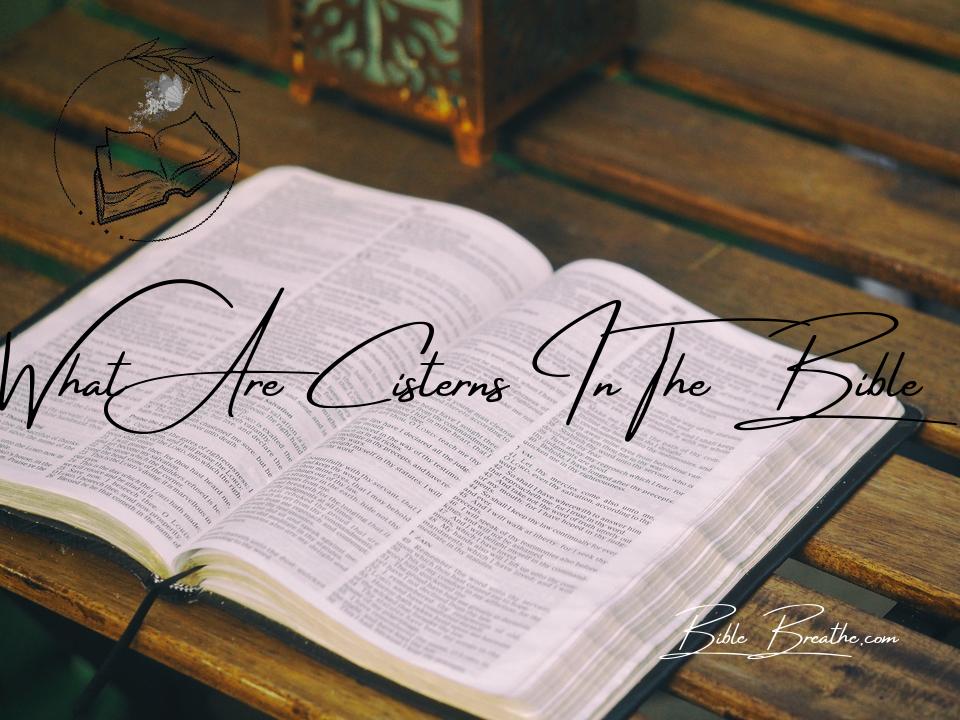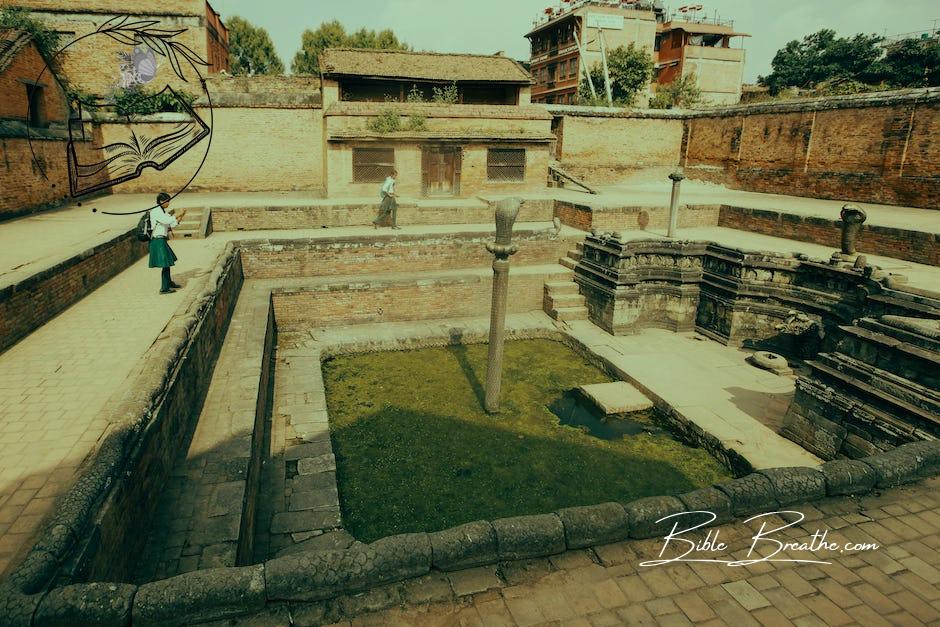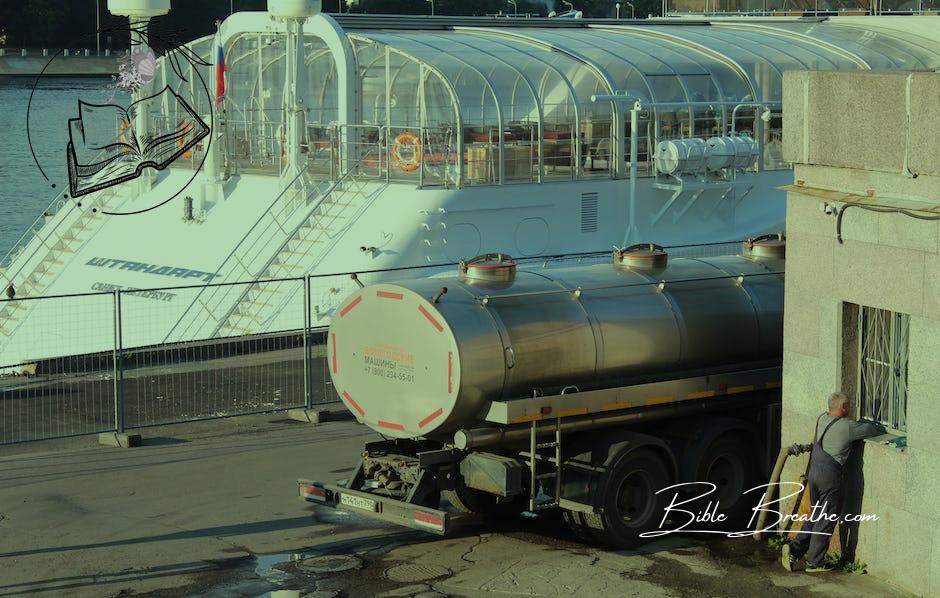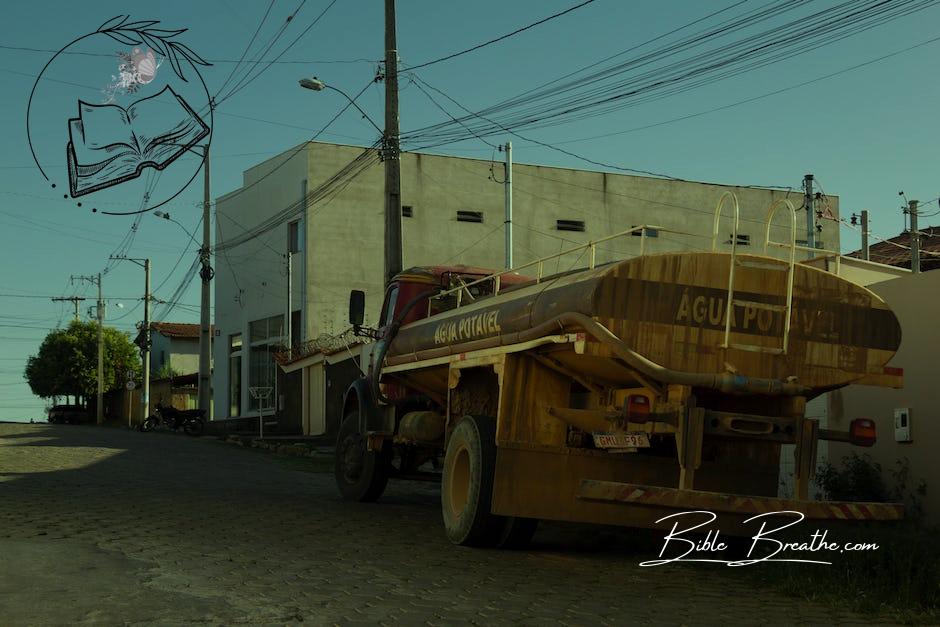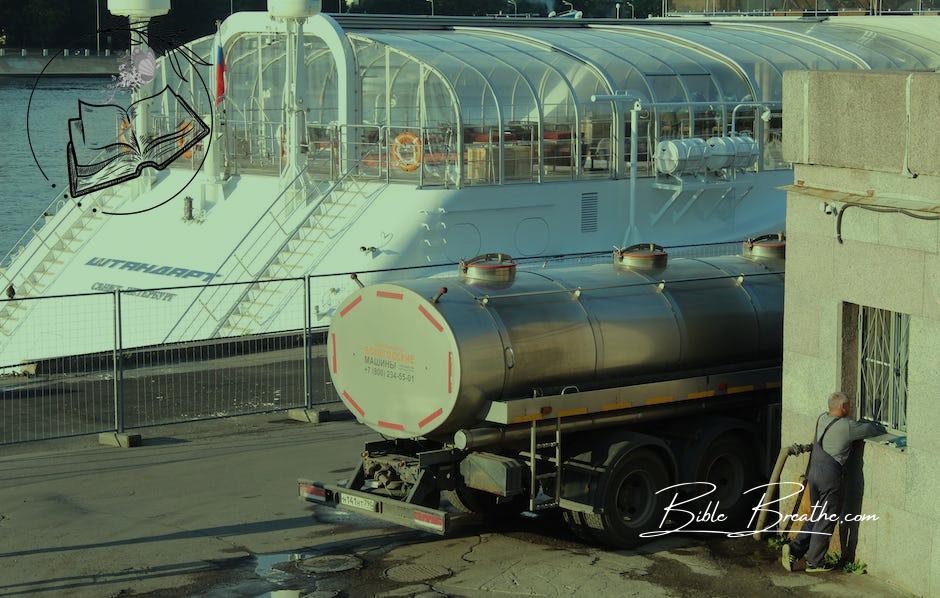What’s the deal with cisterns in the Bible, fam?
Picture this: Cisterns were like heaven-sent water vaults back in biblical times, stashing that life-giving H2O.
When you’re thirsty, you don’t just want a sip, right?
You want a big gulp, and cisterns were all about that.
But here’s where it gets real interesting.
Those cisterns?
They’re not just about agua.
Nah, they’re like a spiritual compass.
You ever felt that deep-down thirst, like something’s missing?
The Bible gets it.
It calls out broken cisterns, saying, “Hey, that’s when you’re looking for something more.”
Understanding these cisterns ain’t just about history class.
It’s about digging into the good stuff.
We’re talking biblical farming, the Promised Land, and all the spiritual vibes.
Join us on this journey, where cisterns aren’t just about water; they’re about quenching that deep soul thirst.
🌊💧
Key Takeaways
-
Cisterns in the Bible play a multifaceted role in various narratives. They are primarily used for storing and preserving water in arid regions. As physical structures, cisterns are essential for survival in a land where water is scarce, and they often symbolize the necessity of sustenance and provision.
-
Beyond their practical function, cisterns offer spiritual lessons. They are used metaphorically to represent trust and reliance on God. Just as people rely on cisterns for a stable water source, the Bible encourages believers to place their trust in God, the ultimate source of spiritual nourishment and sustenance.
-
The enduring relevance of biblical teachings on cisterns is evident in the lessons they offer to modern readers. They prompt reflection on the importance of trusting in God’s providence, especially in times of scarcity or uncertainty. Cisterns also remind believers of the need to prioritize spiritual nourishment and seek a deeper connection with their faith.
-
Exploring what cisterns mean in the Bible encourages readers to appreciate the profound symbolism and practical significance of these structures. It calls for a deeper understanding of the balance between physical needs and spiritual reliance, ultimately leading to a more profound appreciation of the enduring wisdom found in biblical narratives.
Unveiling the Mysteries of Cisterns in the Bible
Photo modified by BibleBreathe.com. Original photo by Mehmet Turgut Kirkgoz on Pexels
Hey there, family!
Today, we’re gonna dig deep into the Bible and explore a topic that’s more than just a historical footnote – we’re talking about cisterns.
These aren’t your ordinary water holes; they’re packed with spiritual significance.
So, fasten your seatbelts and let’s ride!
The Role of Cisterns in Ancient Near Eastern Societies
Think about a sweltering day in the desert.
You’re parched, and there’s no Starbucks in sight.
That’s where cisterns come into play.
These were like the life-saving Yeti coolers of their time.
Cisterns were the backbone of survival in the Promised Land, much like your GPS guiding you through a road trip.
They stored water when natural sources were as scarce as a unicorn sighting.
My people have committed two major no-nos: They abandoned me, the source of living water, and started digging their own cisterns – but here’s the kicker, they’re broken, they can’t hold water!” – Jeremiah 2:13 (ESV)
Jeremiah doesn’t pull punches, does he?
This verse reminds us that when we turn away from the source of living water, it’s like trying to quench your thirst with a cracked, leaky water bottle.
That’s a no-go, fam!
How Cisterns Were Built and What They Were Used For
Building a cistern wasn’t just a casual digging session.
It was more like crafting a masterpiece.
They carved these things out of rock or built them with bricks and mortar.
No leaks allowed!
It’s like when you’re building your dream house, and you want everything to be just right.
But cisterns were more than fancy water storage.
They were like the Swiss Army knives of the ancient world.
People used them for drinking, watering crops, taking care of livestock – basically, they were the ultimate backup plan during those desert dry spells.
As you think about these cisterns, remember, they represent our dependence on God.
Just as these ancient structures held water for survival, our faith in God holds the key to the “living water” that quenches our spiritual thirst.
Don’t let your cistern be cracked and broken, fam!
So, the next time you’re sipping on a refreshing drink, let it remind you of the epic role cisterns played in the Bible and the importance of staying connected to the ultimate source of living water.
Stay blessed, family!
🙏🌊💧
Unveiling the Hidden Treasures: Cisterns in the Bible
Photo modified by BibleBreathe.com. Original photo by Paolo Boaretto on Pexels
Hey there, family, today we’re about to dig deep into the well – and by that, I mean we’re gonna dive into some biblical wisdom surrounding cisterns.
These aren’t just your ordinary water storage tanks; they carry profound spiritual lessons and practical wisdom that can quench the thirst in our souls.
Let’s roll!
Genesis 37:20 – The Plot Against Joseph
Now, here’s a story that could put Hollywood to shame.
We meet Joseph, the dreamer.
His brothers, who were clearly not the fan club president, got envious of his dreams.
So, they tossed him into a dry cistern, and trust me, this cistern was more than just a hole in the ground.
It’s a symbol of their hearts – a barren place lacking in brotherly love and compassion.
“Come now therefore, and let us slay him, and cast him into some pit, and we will say, Some evil beast hath devoured him: and we shall see what will become of his dreams.” – Genesis 37:20 (KJV)
Deuteronomy 6:11 – The Blessings of the Promised Land
Who doesn’t want to hear about blessings?
In Deuteronomy, God promises His people the Promised Land, and cisterns are part of the deal.
These cisterns represent abundance and prosperity that God guarantees.
They were like the sweet springs of life and refreshment in the middle of a spiritual desert.
“And houses full of all good things, which thou filledst not, and wells digged, which thou diggedst not, vineyards and olive trees, which thou plantedst not; when thou shalt have eaten and be full.” – Deuteronomy 6:11 (KJV)
1 Samuel 13:6 – Israelites Hiding During Conflict
Picture this: The Israelites are in the middle of a battle, and the only safe haven they could find were these cisterns.
These underground chambers became their sanctuary.
It’s a reminder that when life’s conflicts hit hard, God can be our hiding place, our refuge.
2 Kings 3:16 – Prophetic Instruction to Make Cisterns
Here, we’ve got Elisha, the prophet, telling the armies to dig cisterns during a drought.
And guess what?
These cisterns miraculously fill with water!
That’s a powerful message that God can provide, even when we’re in the driest, most barren seasons of our lives.
2 Chronicles 26:10 – King Uzziah’s Agricultural Innovations
King Uzziah was a king with a green thumb, you could say.
He brought in some agricultural innovations, including cisterns to collect rainwater.
What does this mean?
It’s God’s wisdom reaching into the practical aspects of our lives.
His blessings aren’t just spiritual; they flow into our everyday routines.
Nehemiah 9:25 – The Prosperity of the Israelites
Nehemiah highlights the prosperity of the Israelites in the Promised Land.
Their cisterns were overflowing.
It’s a testament to God’s faithfulness in fulfilling His promises.
Jeremiah 2:13 – The Metaphor of Broken Cisterns
Now, this is a warning siren!
In Jeremiah, we see people forsaking the Lord, the source of living waters, and carving out broken cisterns.
It’s like choosing to drink from a leaky, cracked cup instead of a fresh, flowing spring.
Let’s not chase worldly pleasures that leave our souls thirstier than before.
“For my people have committed two evils; they have forsaken me the fountain of living waters, and hewed them out cisterns, broken cisterns, that can hold no water.” – Jeremiah 2:13 (KJV)
Jeremiah 14:3 – The Drought and Its Effects
In times of drought, you know how precious a sip of water can be.
Jeremiah mentions cisterns to show the desperation caused by a lack of water.
This mirrors our spiritual thirst for God.
When life gets dry and we’re in need, God’s living water is what quenches our deepest longings.
So there you have it, family!
Cisterns in the Bible are not just old-school water tanks.
They are deep wells of wisdom, reminding us of God’s faithfulness, His provision, and the eternal refreshment only He can provide.
Drink deep, and let your soul be refreshed with the living water that Jesus offers.
Quenching Your Spiritual Thirst: The Marvel of Cisterns in the Bible
Photo modified by BibleBreathe.com. Original photo by Marlon Alves on Pexels
Hey there, my brothers and sisters in faith!
Today, we’re delving deep into the Word to uncover the wisdom behind cisterns as they pop up in the Bible.
Trust me, there’s a whole lot more to these than meets the eye.
Cisterns: Life’s Spiritual Wellsprings
Imagine you’re trekking through a desert, parched and weary.
What’s your saving grace?
A cool, life-giving oasis, right?
Well, cisterns were like those oases, storing the life-giving water that meant survival.
In our faith journey, God’s Word serves the same purpose.
It’s our spiritual cistern, quenching the thirst of our souls.
“For my people have committed two evils; they have forsaken me the fountain of living waters, and hewed them out cisterns, broken cisterns, that can hold no water.” – Jeremiah 2:13 (KJV)
Broken Cisterns: Empty Hopes and Hollow Pursuits
Now, picture a cistern with cracks, water slipping through its fingers.
This image perfectly illustrates what happens when we abandon God’s wisdom and go chasing after the empty promises of the world.
We end up like those broken cisterns, unable to satisfy our soul’s deep thirst.
But remember, God’s wisdom is that living water, the only source that can truly quench our spiritual thirst.
Living Water vs. Stagnant Cisterns
In the Bible, living water symbolizes God’s presence and His Word.
It’s like a crystal-clear river, always moving, always fresh.
On the flip side, stagnant water in cisterns represents a spiritual standstill, where we’re missing out on the refreshing flow of God’s guidance.
So, my friends, the lesson is clear: just as folks in the Bible depended on cisterns for survival in a dry land, we depend on God’s Word for survival in this chaotic world.
Don’t forsake the living water for broken cisterns.
Let’s make sure that in the wild journey of our faith, we’re staying spiritually hydrated.
In this incredible story of God’s love and guidance, cisterns are our teachers, reminding us to seek the living water in a world full of empty substitutes.
The Divine Thirst Quencher: Understanding Cisterns in the Bible
Photo modified by BibleBreathe.com. Original photo by Paolo Boaretto on Pexels
Alright, family, let’s gather ’round and talk about these ancient blessings we call cisterns.
Picture this: a cistern is like your favorite water bottle on a hot day—a lifesaver when you’re parched and in need of refreshment.
Now, let’s uncover the deep truth these cisterns hold!
The Everyday Oasis: Cisterns in Daily Life
In the biblical deserts, water was more precious than gold, like your smartphone in a desert trek.
Cisterns were like heaven-sent hydration stations, providing for everything from drinking water to keeping things clean.
Water storage was a game-changer, meeting your everyday needs with the good stuff, just like your favorite energy drink.
The Craftsmanship of Sustenance: Cistern Construction and Maintenance
Now, think of cisterns as your trusty water bottle that needs a little TLC.
Crafted by skilled hands, these reservoirs were the lifeblood of communities, just like a well-maintained car keeps you rolling.
Craftsmanship was key—these water-holders needed to be strong, unbroken vessels, much like your trusty water bottle never springs a leak!
Society’s Thirst Quenched: The Societal Importance of Cisterns
Back in the day, in the land of promise, having a reliable water source was like having Wi-Fi—it connected you to life.
Cisterns meant security, prosperity, and God’s provision.
They were a bit like having a stocked pantry—always ready for whatever life threw at you.
“For my people have committed two evils; they have forsaken me the fountain of living waters, and hewed them out cisterns, broken cisterns, that can hold no water.” – Jeremiah 2:13 (KJV)
Just like how we need water to survive physically, we need the living water—the deep, eternal truth that never runs dry—to sustain us spiritually.
Don’t settle for broken cisterns when you can have the everlasting well of God’s love and grace, always overflowing and never, ever running out.
So, friends, let’s quench our spiritual thirst with the wisdom of cisterns, understanding the richness of God’s provision and the eternal promise of never-ending refreshment.
Stay hydrated, spiritually and physically!
🙌
Frequently Asked Questions (FAQs) About What Are Cisterns In The Bible
What is the difference between a well and a cistern?
A well is a source of fresh, flowing water, while a cistern is a storage container for rainwater or other water sources.
Why are cisterns often mentioned in the context of blessings or curses in the Bible?
Cisterns in the Bible represent a source of sustenance.
Mentioning them in blessings or curses emphasizes the importance of God’s provision and warns of consequences if people turn away from Him.
How were cisterns maintained to ensure clean water?
Cistern maintenance for clean water involved regular cleaning, often with lime or other purifying agents.
Proper sealing, periodic inspection, and repair of cracks were vital.
This ensured water purity, preventing contamination or the growth of bacteria.
Community diligence in upkeep preserved water quality for consumption and everyday use.

